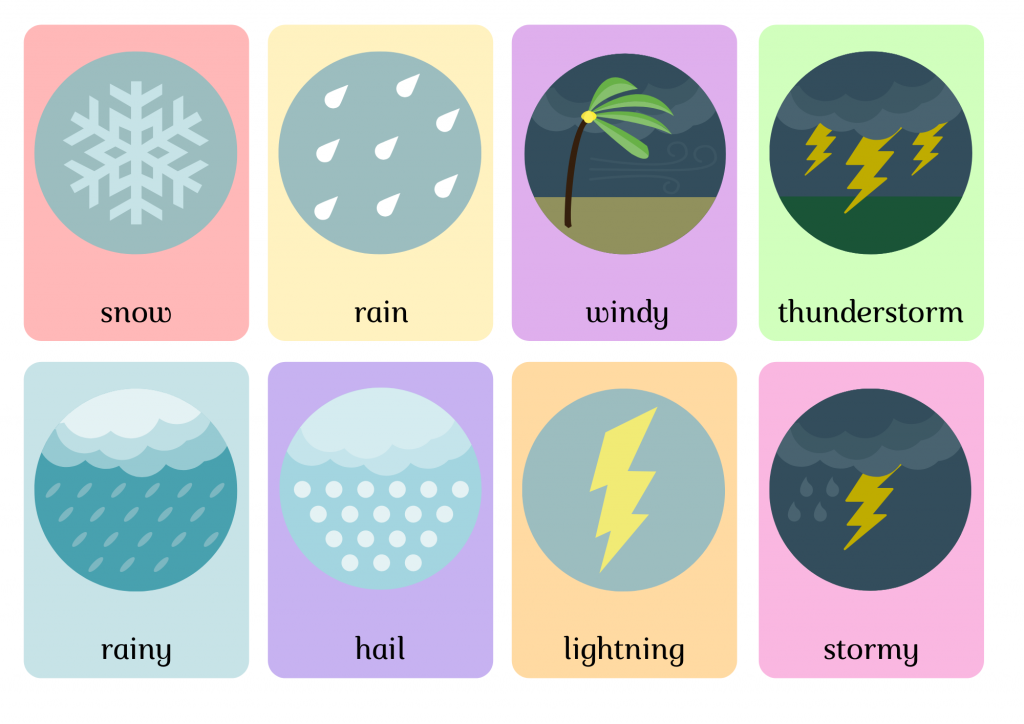Introduction
In this post, Weather Terms 4, we will explore a variety of weather-related vocabulary terms, including snow, rain, windy, thunderstorm, rainy, hail, lightning, and stormy. Understanding these terms can help us better describe and understand the weather we experience on a daily basis. Whether it’s a gentle rain shower or a raging thunderstorm, understanding the different types of weather can help us prepare and stay safe.

Snow:
Snow is a type of precipitation in the form of small, white, ice crystals that fall from the sky. It is typically cold and dry, and it forms when the temperature is below freezing and there is moisture in the air.
Rain:
Rain is a type of precipitation that falls from the sky as liquid droplets. It forms when the temperature is above freezing and there is moisture in the air. Rain can range in intensity from a light drizzle to a heavy downpour.
Windy:
Windy refers to a condition in which the air is moving or blowing strongly. Wind can be caused by differences in air pressure or the movement of the Earth’s atmosphere.
Thunderstorm
A thunderstorm is a type of storm that is characterized by the presence of lightning and thunder. Thunderstorms can also produce heavy rain, hail, and strong winds.
Rainy
Rainy refers to a condition in which it is raining, or there is a lot of rain.
Hail
Hail is a type of precipitation that consists of balls or pieces of ice that fall from the sky during a thunderstorm. Hailstones can range in size from small pebbles to large, grapefruit-sized balls of ice.
Lightning
Lightning is a natural electrical discharge that occurs during a thunderstorm. It is caused by the buildup of electrical charges in the atmosphere, and it is usually accompanied by thunder.
Stormy
Stormy refers to a condition in which there is a storm, or bad weather with strong winds, rain, or other precipitation. Stormy weather can also include thunder and lightning.
Conclusion
In conclusion, the weather is a complex and ever-changing phenomenon that affects us all on a daily basis. By understanding and learning the vocabulary terms related to different types of weather, we can better describe and understand the conditions we encounter. Whether it’s a snowy winter day or a sunny summer afternoon, learning about these terms can help us appreciate the diversity of weather and the many ways it impacts our lives.






